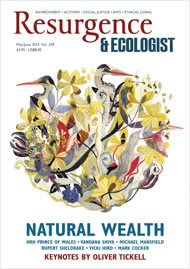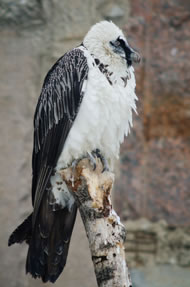It is pretty much official now that the world is assailed by a grave environmental crisis. Just in case we might have forgotten about the relentlessly draining impact of 7 billion humans on the Earth’s life-support systems, this impassioned new book reminds us of the key elements in that dismal story.
Environmentalist Tony Juniper documents with ferocious pace and articulacy how the stock measures of hi-tech farming, such as deep ploughing and the ceaseless application of chemicals, have degraded about a third of the world’s soils. In our efforts to boost farm production for ever-burgeoning populations, we have used, since 1985, half of all the synthetic nitrogen fertilisers that have ever been applied in our entire agricultural history.
In the oceans about a third of the world’s fish stocks have been exploited beyond the limits of their endurance (some authorities suggest that over-harvesting affects four-fifths of all fisheries). Yet the horror story that I found even more compelling was Juniper’s account of the discarded flotsam now bobbing in the oceans.
It concerns our mindless dumping of plastic into the sea: plastic that has built up, in areas with little current, into a slow-swirling gyre of oil-based particles. In fact one of the contributors to the book likens the problem to an “unflushable toilet”. Every square kilometre of the affected maritime zone contains 50,000 indestructible plastic pieces and, although they reduce in size, they never diminish in volume. A UN report in 2006 estimated that this toxic soup chokes to death, or poisons, a million seabirds and 100,000 sea mammals every year.
The really intelligent thing about this book is the way that Juniper frames the arguments. Like many environmentalists, he knows how the wider public hears all the horror stories and, either because the sense of hopelessness is so unbearable or because the challenge of triple-dip recession seems so much more important, it finds a way to bypass the news of ecological catastrophe.
Whatever the reason, and Juniper has convincing arguments to explain our balefully short attention span, we cannot quite submit to the idea that every mouthful we ever eat, all our wealth, everything we have, from our Cox’s Orange Pippins to our Apple Macs, comes out of the Earth or is given to us by the sun. After 10 generations of industrial society, detached from the processes of soil and sweat, we are so oblivious to the ways of Nature that we cannot bring ourselves to feel its genuine importance in our hearts.
Juniper’s answer to this is not to hit us in our chests, but to hit us where it really matters: in our pockets. The basic thrust of the book expresses what is now orthodox environmental thinking. All the multitudinous donations that the Earth makes free of charge to human society are known as ‘ecosystem services’. In an impressive whistle-stop tour of these many kindnesses, which involve almost every aspect of life on the planet, Juniper presents a detailed breakdown of how they work and what they would cost if we actually had to pay for them.
At times the sheer relentless repetition of telephone-number cash sums is a tad overwhelming, but the overarching point is extremely well made: we are in serious debt to the Earth. Juniper has a natural storyteller’s gift for moving from the cold statistic to the affecting human tale. Take creatures as seemingly disconnected from us as vultures. It turns out that these reptilian-headed scavengers are actually incredibly valuable. In India they were running a refuse-disposal network that spared that nation from 12 million tonnes of rotting flesh every year.
Indians have learnt the hard way about the generosity of vultures, because in the 1990s they started unwittingly to kill off 40 million of them with a veterinary painkiller called diclofenac. Juniper succinctly details the chain of unforeseen consequences. Not only did the loss of the birds’ sanitary service give rise to a mountain of cattle carcasses, but it also triggered a vast increase in the dog population, which, in turn, caused 40 million more dog bites and 47,000 additional deaths from rabies. The total bill for losing the nation’s spiralling flock of avian scavengers has been calculated at US$34 billion.
This is small beer when you compare it with a universal service such as the Earth’s provision of drinking water. Despite the fact that we load our rivers with an unwanted cargo of nitrate fertiliser and plastic rubbish, it is these same freshwater sources that quench our collective thirst. Perhaps even more impressive than Juniper’s research on the price of such services is an ability to remain upbeat in the face of so much bad news. In every chapter there is a leaven of intelligent government planning or commercial best practice so that the book is as full of hope as of despair.
One example in Juniper’s account of drinking-water involves New York, where the authorities, instead of creating a sediment-stripping plant at massive cost, worked with landowners who control the city’s watershed to safeguard habitat and water quality in order to provide the largest unfiltered supply system in the US.
The main revelation from this particular anecdote is really the moral of the whole book. What is good for Nature turns out, on closer analysis, to be the thing that is best for us too. However disconnected or alienated we may become from the planet’s circulatory systems, humans are utterly dependent upon them. Whenever we manage to sustain Nature intact, we are healthier and wiser – and wealthier too.
This is an edited version of a review that first appeared in The Guardian (19 Jan 2013), reprinted here with the permission of Guardian Newspapers.








